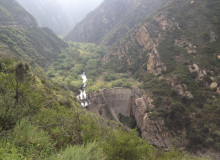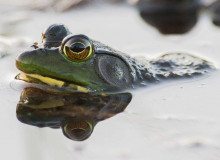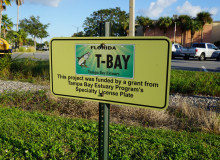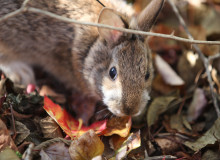Featured Stories
Northwestern University
Many South and West Side neighborhoods of Chicago tragically face food insecurity. Locally growing produce has been a strategy employed in backyards, urban farms and community gardens to combat this issue and address food quality concerns.

The Rindge Dam in Malibu Canyon near Malibu in Southern California hasn't been functional for decades. (Churnice, CC BY-SA 3.0)
The George Washington University
The decommissioned Rindge Dam in Malibu Creek poses a major threat to the region's steelhead trout population. Here's why it should be removed.
Northwestern University
Residents of housing cooperatives can use less energy on average and collaborate on environmental goals, combining affordable housing with sustainable living.
Mandela Washington Fellow
Mwangala Maunga's solar powered water purifier aims to bring clean water to people across Zambia and to inspire other girls to pursue careers in science.
University of Connecticut
Ecologists and statisticians have collaborated to develop a new tracking model that accounts for feline predators' resting periods.

Chicago's skyline at sunrise. (Brad Knight/Unsplash License)
Planet Forward Correspondent | Northwestern University
In this Q&A, Chicago environmental organizer Dany Robles talks about how the Illinois Green New Deal Coalition pushes for an intersectional environmental agenda.
Planet Forward Sr. Correspondent | Eckerd College
What effect can a cool license plate have on your local ecosystem? In the Tampa Bay area, simply purchasing a specialty license plate, adorned in the iconic tarpon, funds dozens of projects annually through the Tampa Bay Estuary Program.
(Jesse Bauer/Unsplash License)
SUNY Environmental Science and Forestry
How can fungi play an important role in mitigating climate change? In this podcast, I talk with two experts who discuss the different ways that fungi are often misunderstood and overlooked.
University of Connecticut
Scientists express concerns that an often fatal disease infecting Connecticut's domestic rabbit population may spread to the species' wild counterparts and have disastrous consequences.

(National Parks Gallery/Public Domain Dedication)
George Washington University
An invasive fungal pathogen is killing amphibians and sweeping across the Americas. A greater policy response is urgently needed in the United States to address this epidemic and to protect biodiversity.




